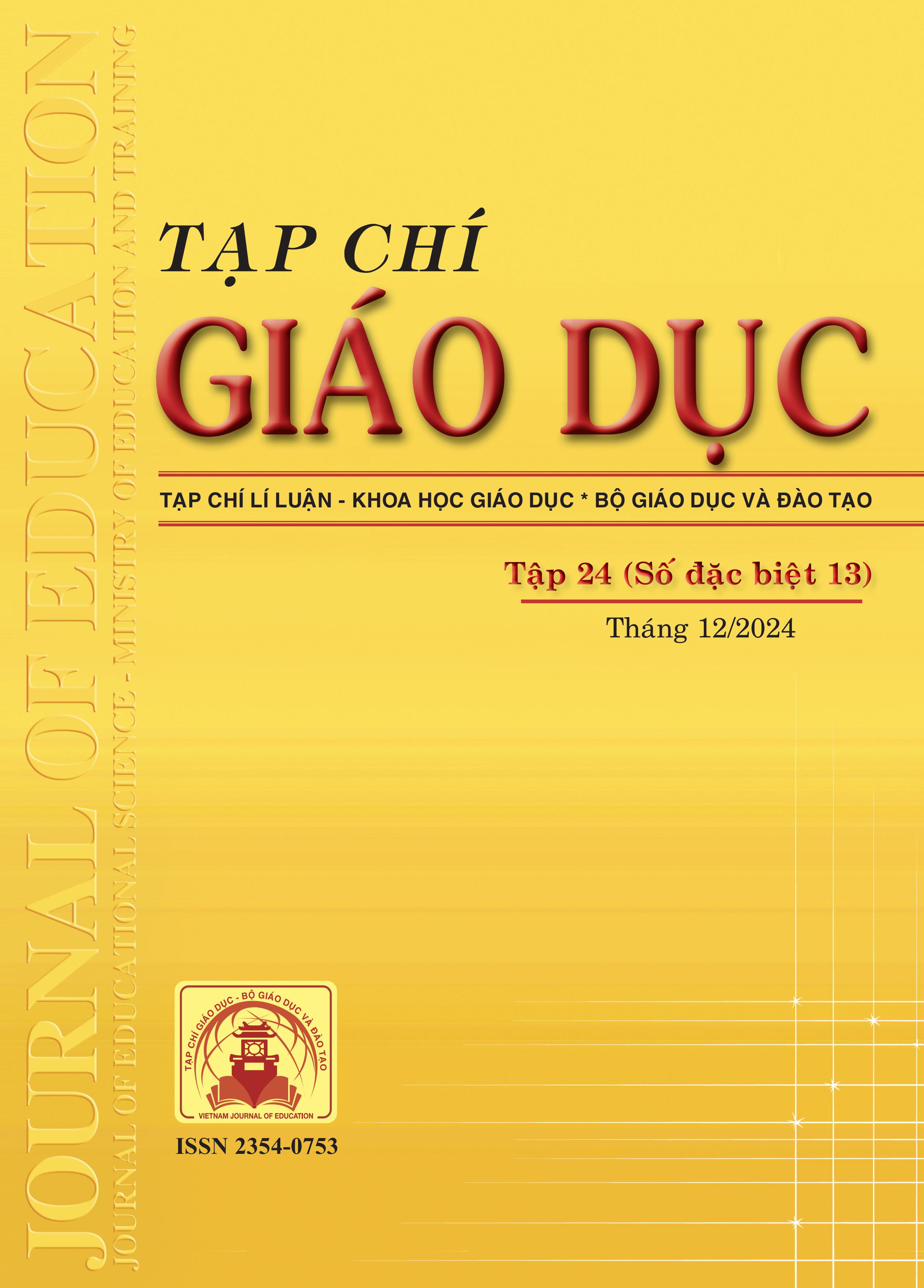Vận dụng mô hình “Học tập trải nghiệm” của David A. Kolb vào dạy học khái niệm “Cấp số nhân” (Toán 11)
Tóm tắt
In modern education, effective teaching methods are necessary to improve students' understanding and develop their competences. David A. Kolb's experiential learning model consists of four stages: Concrete experience, Reflective observation, Abstract conceptualization and Active experimentation; it is an effective tool in promoting active learning and improving students' understanding. The content of “Geometric Sequence” (Math 11) has many practical applications such as compound interest, population growth, radioactive decay, etc., so there are many opportunities to implement teaching according to the experiential learning model. This study presents David A. Kolb's experiential learning model, organizing the teaching of the concept of “Geometric Sequence” (Math 11) according to this learning model and some experimental teaching results for 40 students of class 11A2 of Thanh An High School, Vinh Thanh, Can Tho City. The results of experimental pedagogical teaching show that applying the experiential learning model to teaching the concept of “Geometric Sequence” has improved teaching effectiveness; students actively participate in the learning process and, at the same time, know how to apply knowledge about geometric sequence into practice.
Tài liệu tham khảo
Anik, Y., Yay, S. K., & Jarnawi, A. D. (2021). Critical thinking: How is it developed with the experience learning model in junior high school students? Al-Jabar: Jurnal Pendidikan Matematika, 12(1), 175-184.
Avelino, G. I. J., & Joseph, D. R. (2017). Exploring mathematics achievement goals using Kolb’s learning style model. Asia Pacific Journal of Multidisciplinary Research, 5, 19-24.
Ghofur, A. (2021). Mathematial Literacy Ability in Experiential Learning with Performance Assessment Based on Self -Efficacy. Unnes Journal of Mathematics Education Research, 11(1), 94-101.
Kolb, D. A. (1984). Experiential Learning: Experience as the Source of Learning and Development. New Jersey: Prentice Hall.
Lê Thị Hoài Châu (tổng chủ biên), Trần Anh Dũng (chủ biên), Trần Trí Dũng, Lê Chân Đức, Ngô Minh Đức, Phạm Duy Khánh, Hồ Lộc Thuận (2023). Toán 11 (tập 1- Bộ sách Cùng Khám phá). NXB Đại học Huế.
Morris, T. H. (2020). Experiential learning - a systematic review and revision of Kolb’s model. Interactive Learning Environments, 28(8), 1064-1077.
Nguyễn Phan Lâm Quyên (2023). Vận dụng chu trình học tập trải nghiệm của David Kolb trong việc rèn luyện kĩ năng tổ chức hoạt động trải nghiệm trong dạy học cho sinh viên ngành Giáo dục tiểu học. Tạp chí Khoa học Giáo dục Việt Nam, 19(S3), 91-93.
Nguyễn Văn Thuận, Phạm Thị Thương, Phạm Sỹ Nam (2023). Dạy học khái niệm “Hình hộp chữ nhật” (Toán 7) theo mô hình học tập trải nghiệm. Tạp chí Giáo dục, 23(22), 7-10.
Phan Thị Thúy Phượng (2018). Vận dụng “Mô hình học trải nghiệm” của David Kolb trong dạy học các học phần thực hành thuộc chuyên ngành Quản trị văn phòng. Tạp chí Giáo dục, 427, 40-43.
Trần Nam Dũng (tổng chủ biên, Trần Đức Huyên, Nguyễn Thành Anh (đồng chủ biên), Ngô Hoàng Long, Nguyễn Cam, Phạm Hoàng Quân, Phạm Thị Thu Thủy (2023). Toán 11 (tập 1 - Bộ sách Chân trời sáng tạo). NXB Giáo dục Việt Nam.
Đã Xuất bản
Cách trích dẫn
Số
Chuyên mục
Giấy phép

Tác phẩm này được cấp phép theo Ghi nhận tác giả của Creative Commons Giấy phép quốc tế 4.0 .












